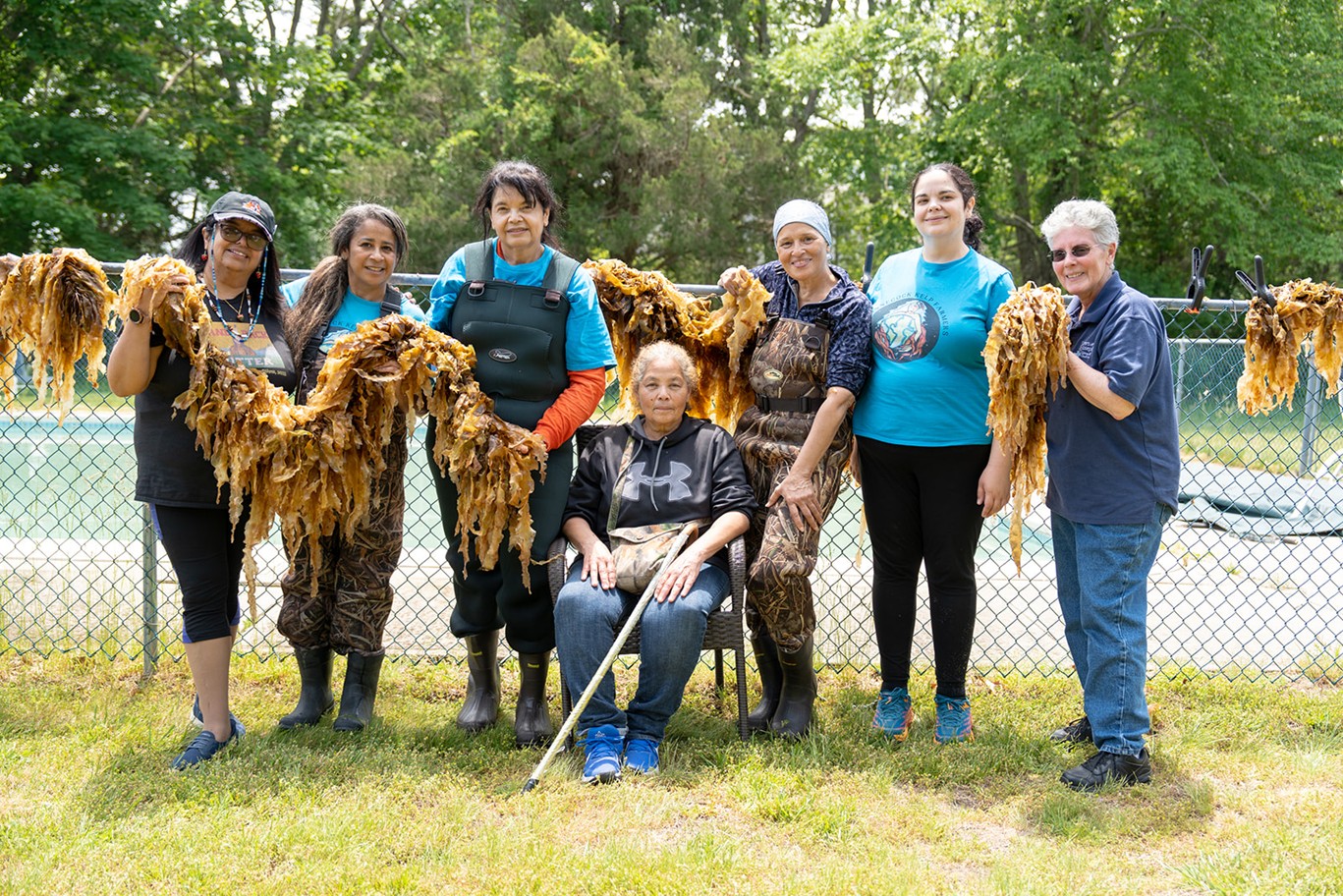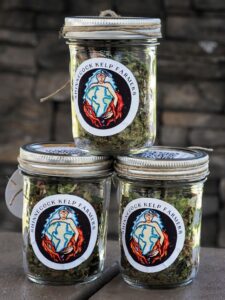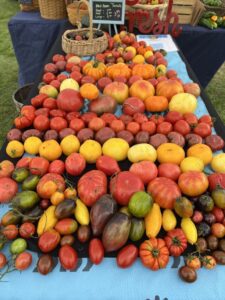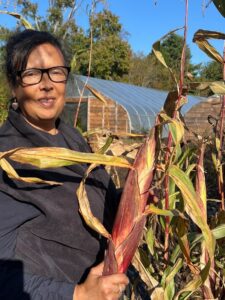As we continue to celebrate Women's History Month, it’s essential to recognize the often-overlooked contributions of women in agriculture. Women farmers, ranchers, and agricultural entrepreneurs have long been the backbone of sustainable food systems, nurturing the land, preserving traditions, and fostering economic resilience. Their work not only feeds families and supports local economies, but also drives innovation in farming practices, promoting sustainability and food security in a rapidly evolving world. In times of challenge due to climate change and supply chain disruptions, women in agriculture continue to be leaders, ensuring that communities thrive through resilience, creativity, and care.
Long before the world recognized the revolutionary impact of the Fertile Crescent’s wheat, an equally transformative agricultural revolution was unfolding in North America’s Yucatán Peninsula. This revolution gave rise to a crop that would reshape the world—corn. Corn spread rapidly across the continent, becoming not only a vital source of sustenance but also a cornerstone of cultural expression and trade. For generations, women of Tribal Nations have been the stewards of this sacred crop, guarding the seeds, managing the land, and ensuring the nourishment of their communities. One such woman, Polly Cooper, exemplified this powerful legacy when she walked hundreds of miles to bring corn to Revolutionary War soldiers, teaching them how to prepare and preserve it, ultimately ensuring their victory. The flourishing cornfields, orchards, and forests that early Europeans encountered were not the product of chance—they were the fruits of Indigenous women’s labor, vision, and leadership. Today, we still feel the echoes of their influence in the global agricultural economy, as they continue to shape the future of farming and the economy at large.
The Office of Economic Development and Office of Environmental Resource Management recognizes two extraordinary, women owned agricultural businesses through interviewing Ashawaug Farm and Shinnecock Kelp Farmers. Both illustrate the power of women-led agricultural businesses to transform local economies. These businesses are not only about growing food but also about supporting communities—offering spaces where knowledge is shared, cultures are preserved, and sustainable practices are at the forefront. As these women continue to nurture the land and its people, their success offers a powerful reminder of how the intersection of culture, sustainability, and entrepreneurship can fuel local economies and create lasting change for future generations.
Read below to learn more about these women-led agricultural businesses. For more information about USET’s agriculture program and business support, visit USET’s Office of Economic Development and Office of Environmental Resource Management at www.USETinc.org.
SHINNECOCK KELP FARMERS
When was Shinnecock Kelp Farmers established and what was your inspiration behind starting this business?
The Shinnecock Kelp Farmers were established in 2019 following the nationwide release of the film Conscious Point on PBS. A group called Greenwave who support seaweeds farmers were moved by the film and approached us inquiring if we had any interest in seaweed. Of course, our inspiration was a set of decisions called the Seaweed Cases which affirmed Shinnecock’s right to seaweed and proved that surrounding jurisdictions recognized Shinnecock’s sovereignty over the natural resource. We were inspired to leverage Greenwaves’ expertise with our traditional ecological knowledge to engage in a business that helps Mother Earth.
What do you love about your business? What sets you apart from other agricultural businesses?
I love being able to create habitat for marine life. The biodiversity present on our farm is incredible. It’s very important to our mission that we are able to demonstrate a clear connection between the land and the sea. Historically, Shinnecock has always depended on the bounty of the sea for the success of our agricultural system, integrating seaweed and fish fertilizer into our corn, beans, and squash. Our business allows us the opportunity to nourish and heal that which has been damaged by colonization.
What are some of the top highlights/accomplishments your business has had since its establishment?
This year, we were astonished to find a huge population of healthy Peconic Bay Scallops at our farm. These scallops have been battling the very real threat of extinction but have found refuge at our farm sites. Their habitat, eel grass, has largely died off due to warming water temperatures, but based on our experience we believe that kelp farms can replace their habitat and protect them from extinction. This is a huge accomplishment for us since the scallop fishery is particularly one that benefits not only the plant but also people.
What’s the best advice you’ve ever received? What advice would you share with other women entrepreneurs?
Our traditions teach us that Earth is our mother and that we must protect her, just as she provides for us. The advice embedded in that wisdom drives everything we do. As women, we have an important role to ensure the survival of all living things.
What are you the proudest of as a business owner?
I’m proud to be able to provide living wages to our farmers in an extremely high cost of living area. I am proud to be able to have a working model of the blue green economy that centers the leadership of Indigenous women. I am proud that our business makes a positive difference in our community.


For more information about Shinnecock Kelp Farmers, please visit their website at https://www.shinnecockkelpfarmers.com/
ASHAWAUG FARM
When was Ashawaug Farm established and what was your inspiration behind starting this business?
As a farm/food producer we have a unique opportunity to engage with our local communities. We have the ability to not only feed our community, but to also share knowledge throughout the year that encourages and supports agriculture.
Narragansett Food Sovereignty Initiative was established in 2014 to enable Narragansett people to provide food, health, and wellness through sustainable agriculture, economic development, community involvement, and cultural and educational programs.
Ashawaug Farm is our new home, where we will merge our work. Our vision includes a small-scale commercial heritage farm specializing in heirloom, culturally relevant, and indigenous varieties. This vision will grow to be an outdoor cultural education classroom and will include agricultural and art internships, workshops and seasonal programming. We see this as a space to address food justice and food security by providing an area to grow, teach and share, a place to harvest and an outdoor class space to engage with our community in a safe environment.
What do you love about your business? What sets you apart from other agricultural businesses?
I love creating a space that supports our local community. I am fueled by having this space that enables us to share and teach, and I appreciate all of our crops, in all stages, and what each offer is the reward, especially connecting with them through every step of their growth. I am also a creative person, so I appreciate capturing the plants' growth, the various stages and eventual bounty. Working with the land and understanding the value of a balanced ecosystem is key as an indigenous food producer. I measure my rewards not by capital gain but more by our ability to create a sustainable space for today and our future generations. Our emphasis on the culture in agriculture sets us apart from other agricultural businesses.
What are some of the top highlights your business has had since its establishment?
I feel a true sense of accomplishment in a few areas - spending time with my grandchildren, seeing them engaged on the farm, growing our Narragansett flint corn, displaying over 40 varieties of heirloom tomatoes at the farmers market and hosting workshops for our tribal community, each is important and valuable in its own way.
What’s the best advice you’ve ever received? What advice would you share with other women entrepreneurs?
At a young age I was taught to lead in a way that will benefit future generations. And as someone who lost my mother at a young age, I also learned that we aren’t promised tomorrow so make our time count. My advice is do what you love and it will feed you!
What are you the proudest of as a business owner? Being an Indigenous owned and operated farm!


For more information about the Ashawaug Farm, please visit their website at https://www.ashawaugproject.com/
